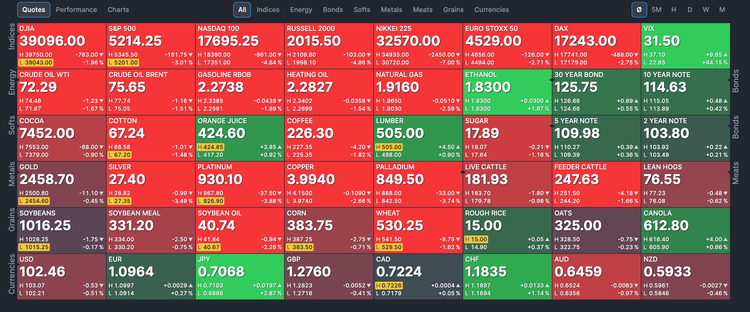Safeguarding Your Investments and Wealth During a Market Crash

A market crash can be a frightening event for investors, causing significant losses in a short period. However, with the right strategies in place, you can protect your investments and wealth during turbulent times. In this article, we'll discuss how to safeguard your assets and maintain financial stability during a market downturn. Let's dive in!
Diversify Your Investment Portfolio
One of the most critical strategies to protect your investments during a market crash is diversification. By spreading your investments across various asset classes, such as stocks, bonds, real estate, and cash, you can reduce the overall risk of your portfolio. Diversification helps ensure that your assets don't move in the same direction simultaneously, minimizing potential losses.
Maintain a Long-Term Perspective
Market crashes can be emotionally challenging, leading to panic-selling and poor financial decisions. To protect your wealth, maintain a long-term perspective and avoid making impulsive decisions based on short-term market fluctuations. Remember that markets have historically recovered from downturns, and staying invested through market cycles can lead to better long-term returns.
Rebalance Your Portfolio Regularly
Regularly rebalancing your portfolio is essential to maintain your desired asset allocation and risk level. As markets fluctuate, your portfolio's allocation may drift away from your initial target, potentially exposing you to higher risks. By rebalancing your portfolio, you can realign your investments with your risk tolerance and financial goals, helping to protect your wealth during market downturns.
Consider Defensive Investments
Defensive investments, such as bonds, dividend-paying stocks, and consumer staples, can provide a level of protection during a market crash. These investments tend to be less volatile and may offer more stable returns, cushioning your portfolio from sharp declines. Incorporate defensive investments into your portfolio to help mitigate risks and maintain financial stability during market turbulence.
Build an Emergency Fund
An emergency fund is a crucial tool for protecting your wealth during a market crash. By having a sufficient cash reserve, you can cover unexpected expenses without needing to sell your investments at a loss. Aim to save at least three to six months' worth of living expenses in a readily accessible account, such as a high-yield savings account or money market fund.
Manage Your Debt Wisely
High levels of debt can leave you financially vulnerable during a market crash, potentially forcing you to liquidate investments at unfavorable prices. To protect your wealth, manage your debt wisely by paying down high-interest loans and avoiding unnecessary borrowing. Aim to maintain a healthy debt-to-income ratio and prioritize debt repayment as part of your financial strategy.
Stay Informed and Monitor Your Investments
Staying informed about market developments and monitoring your investments is essential for protecting your wealth during a market crash. Keep up-to-date with economic news and industry trends, and regularly review your investment performance. By staying informed, you can make timely adjustments to your financial strategy and minimize potential losses.
TL;dr
A market crash can be challenging for investors, but with the right strategies in place, you can protect your investments and wealth during turbulent times. By diversifying your portfolio, maintaining a long-term perspective, rebalancing regularly, considering defensive investments, building an emergency fund, managing debt wisely, and staying informed, you can safeguard your financial future and weather any market storm.





Member discussion